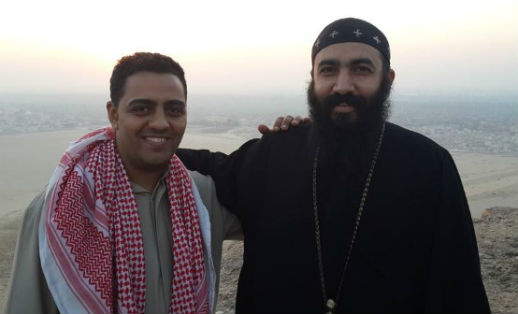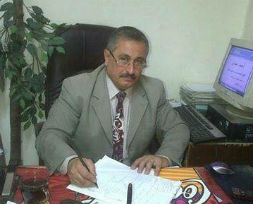
The father of an Egyptian Christian soldier found dead in his military unit 12 weeks ago is adamant, and angry. The results of an autopsy and military investigation into his son’s death are simply “not true,” he says.
“I am very angry at the Suez military prosecution for refusing to give us a copy of the forensic report, and for refusing twice our requests for another autopsy,” Gamal Mikhail Silvanus told World Watch Monitor. “We will continue to struggle with them.”
Determined to clear his son’s name and identify his killer, Silvanus as a last resort filed an appeal last week before Egypt’s top military prosecutor to reopen the case. But the petition was refused on 12 Sept., leaving the father at a legal dead end.
“They say that my son committed suicide, and no one killed him. That is not true,” the bereaved father said. “I am sure that Bahaa did not kill himself. I won’t waive the rights of my son. I’ll struggle until my last breath to reveal the truth.”
Conscript Bahaa Mikhail Silvanus, 23, died from two bullets to his chest on 24 June when his body was found in an office at his military base in Suez, along the desert road near Cairo.
When his family came from Assuit in southern Egypt to claim his body the day after his unexplained death, military authorities told them their son had committed suicide.
Found still seated in a chair, the soldier had allegedly shot himself twice in the chest at close range with the pistol found lying at his feet. Shocked and disbelieving, his relatives questioned the military’s conclusion. “How could our son have even shot himself the second time, without losing his balance and falling from the chair?” they wondered.
They were assured that after the army’s forensic experts issued an autopsy report, an official military investigation would confirm the circumstances of their son’s death. But seven weeks later, lawyers for the grieving Silvanus family were still waiting for the autopsy and final army investigation report.
“We went to the military prosecution many times, to check if the forensic report had been issued or not,” lawyer Atef Nazmy told World Watch Monitor. “But they were procrastinating.”
Lawyers denied documents

Finally, on 15 Aug., the military prosecutor admitted that the forensic report had been issued more than three weeks earlier. “But they didn’t allow us to take a copy of it, nor of the military prosecution’s report. They asked us to look at them, without taking any copies,” Nazmy said.
“It was a shock for us when we read these reports,” the lawyer continued. “The forensic report declared there was no criminal suspicion regarding Bahaa’s death. But it didn’t even mention the sharp blow to Bahaa’s forehead. We have photos of his body in the morgue that show this.”
His family contend that the head wound was physical evidence that the soldier was beaten on his head, perhaps by the barrel of the gun, before an unknown assailant shot him to death inside the army post.
But the military’s report stated that Bahaa Silvanus died as a result of his own “deliberate negligence”, clearly implicating him of suicide. This official conclusion on the soldier’s death cancelled his family’s right to collect the financial compensation awarded by the state for a soldier who dies during his military service, and closed the investigation.
After the lawyers sent two petitions in August requesting another autopsy, and both were refused, the only remaining legal option was to appeal the case in writing before the Military Prosecutor General’s office. But now that appeal has been denied.
Although initial coverage appeared in the Egyptian press regarding Bahaa Silvanus’ death, there has been almost no commentary since.
One Egyptian human rights activist asked about the case told World Watch Monitor that he was reluctant to comment on a case under the jurisdiction of the country’s all-powerful military. “The case of Bahaa is very sensitive. It is very difficult for anyone in human rights to talk against the military,” he said, requesting that his name be withheld.
Pressured for his faith?
One source close to the Silvanus family told World Watch Monitor that their son had been very positive about his experiences under his first commander in an otherwise all-Muslim battalion. But his attitudes had taken a sharp downturn after a new commander took over in April, he said.
“Bahaa didn’t do that. I know him very well. He was not a desperate person to commit suicide.”
Rev. Mikhial Shenouda
“Since that moment, Bahaa’s impression about the military had changed. He was telling me that his new commander was dealing with him in a very bad way. Bahaa was the only Christian conscript in his unit, and he was under great pressure and discrimination.”
“I was noticing that during his last holidays, he didn’t want to go again to the military, and he was very afraid,” the source said. The family’s lawyers have since learned that the commander at the time of their son’s death has been transferred away from the Suez base.
Bahaa Silvanus had been very active in music and the other ministries of the Coptic Orthodox church in Rezkit Deir Al-Muharraq village where he grew up. He had told his father he wanted to join a monastery after he finished his military service.
Suicide?
“I’m against this false allegation,” senior village priest Fr. Mikhial Shenouda told World Watch Monitor. “Bahaa didn’t do that. I know him very well. He was not a desperate person to commit suicide. We pray for revealing the truth about the killing of Bahaa, to win his rights and for the comfort of his family.”
In a similar incident two years ago, which remains unresolved, the family of a Coptic soldier who died on 31 Aug., 2013 have rejected claims by military police that he committed suicide. Abu Al-Kher Atta Abu Al-Kher had reportedly argued with another soldier who was pressuring him to convert to Islam, although no one has been found accountable for his death.
Last month, another Coptic soldier was killed in his army battalion, openly shot dead by a Muslim conscript who had threatened to kill him over arguments about the Copt’s Christian beliefs. After his arrest for the 23 Aug. murder, soldier Mohammed Tarek reportedly told prosecutors that he had decided to kill Bahaa Saeed Karam, 22, because of their heated quarrel about religion during the Ramadan month of fasting. Tarek remains under arrest until prosecutors file charges to refer his case to court.